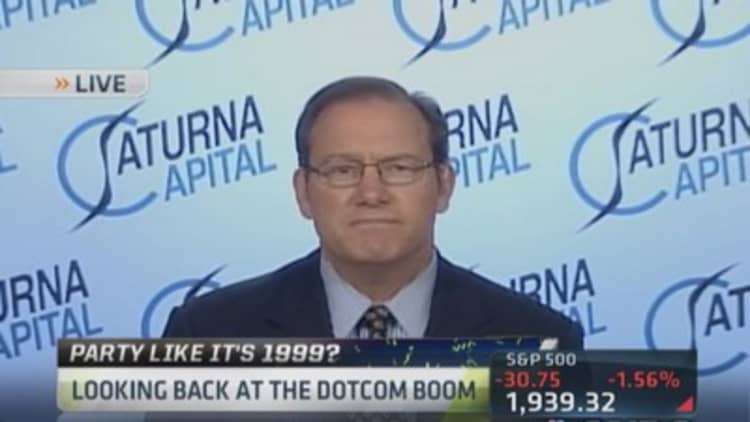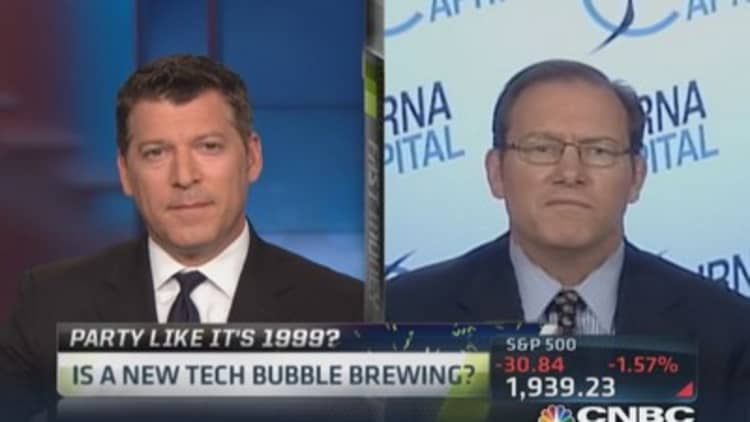
You don't have to be a rock star to go from signing autographs to receiving death threats. The perils of fame can also happen to those who live through some of Wall Street's biggest moments, such as the dot-com boom of the late 1990s.
"In a 21-month period, I went from occasionally being asked for an autograph to my life being threatened," said Paul Meeks, who led Merrill Lynch's technology investment unit during the height of the Internet stock craze.
The era remains one of the most notorious in Wall Street's history—with companies of all kinds attempting to harness and profit from waves of Americans gaining access to the World Wide Web from their home computers.
New technology start-ups were being born overnight, and from the biggest brokerages to folks in middle America, everyone wanted in.
Companies with little profits or revenues went public to much fanfare.
Amazon's Jeff Bezos was named Time magazine's "Person of the Year" in 1999 for "changing the way the world shops."
The euphoria catapulted stock prices higher, pushing the technology-dominated to its peak of 5,132.52 in March 2000.
Read MoreTech hardly a bubble like in 1999, pros say
Within Merrill Lynch, Meeks went to work creating six tech-based mutual funds, which, according to him, grew in value from zero to $8 billion in just under two years.
"Such a sum had never been built so quickly, at least at our firm, and it had a long history," he said Thursday on CNBC's "Halftime Report." "The Merrill Lynch Internet Strategies Fund raised $1.1 billion in three days of marketing before we shut off the spigot."

And then, the bubble burst.
From its dot-com high, the Nasdaq Composite plunged 68 percent by April 2001, crushing the returns of fund managers like Meeks, whose Global Technology Fund and Internet Strategies Fund both fell more than 70 percent from 2000 to 2001.
"Just because I didn't own Pets.com didn't mean that I didn't suffer," said Meeks. "Too much money came into the fund at the top, … and I had a mandate to manage a technology-only fund and to keep it fully invested at all times."
Now, nearly 15 years later the appetite for technology start-ups and IPOs is heating up once again.
Take, for example, Uber.
Read More'90s analysts don't see tech bubble 2.0
The on-demand car service company's latest round of venture capital funding valued it at $18.2 billion.
Or Facebook's $1 billion acquisition of photo-sharing app Instagram.
This year also happens to be the busiest for public offerings in the sector since 2000—with 43 companies making their stock market debut so far this year, according to data research firm Dealogic.
Read More Uber's sign-ups jump 850% after strike
So, is history about to repeat itself?
Not quite, said Meeks, who is now a portfolio manager for the four-star-rated Sextant Growth Fund at Saturna Capital.
"I think that today the quality of companies that make their way through IPOs is much higher," he said. "Part of this is based on lessons learned and the stricter requirements of their financiers."
But Meeks does offer a word of caution.
"As a species, we're a greedy beast," he said. "We always have been and always will be. Our memories are too short, so getting burned once doesn't preclude us from getting fleeced again."
—By CNBC's Katie Young



